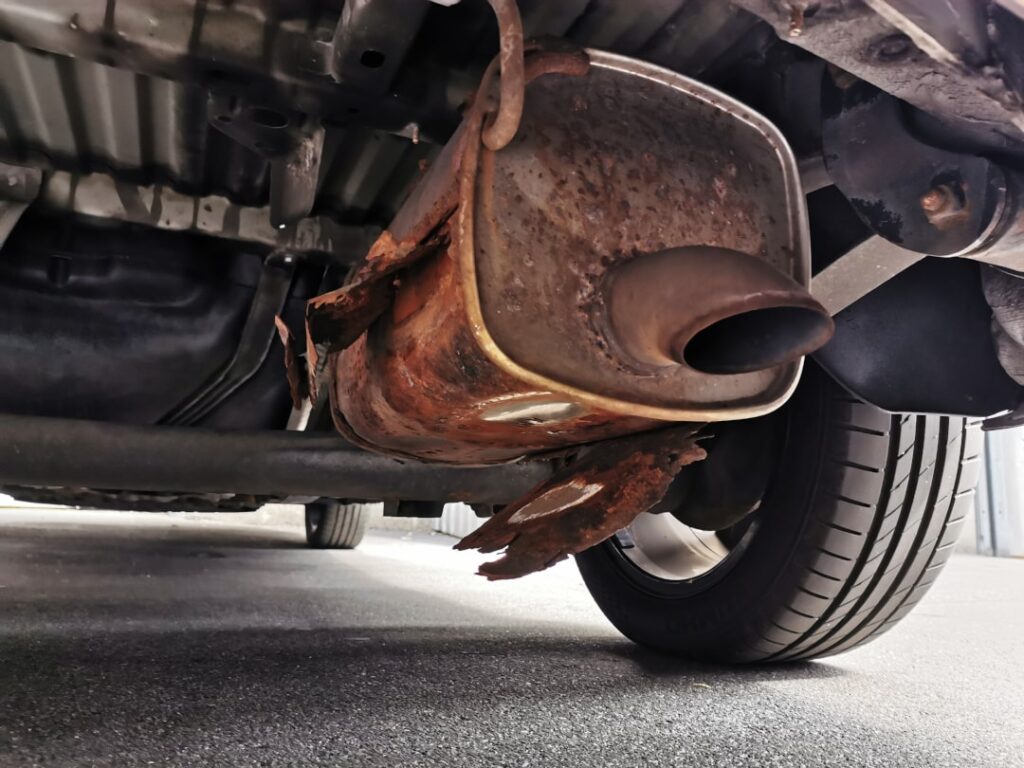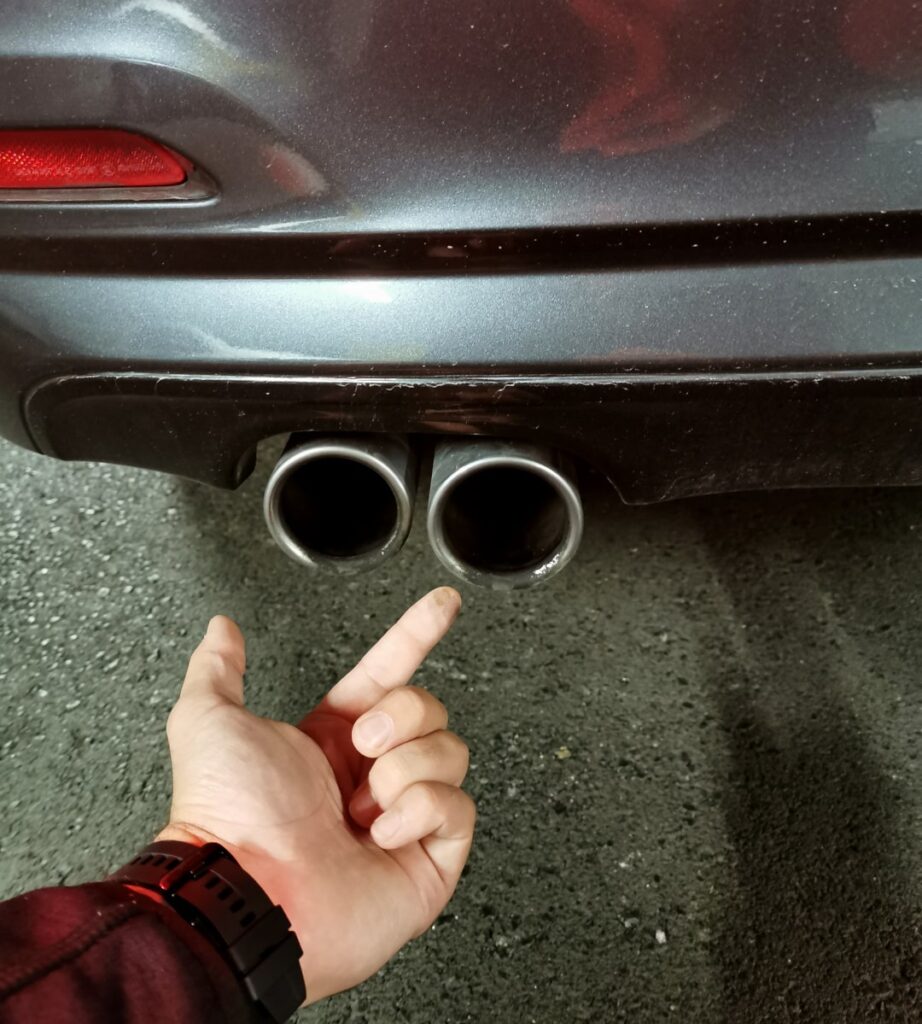
Water from Exhaust
Causes & Solutions
In most cases, this is condensation that settles in the exhaust pipes. In principle, water leaking from the exhaust is normal and not harmful to your car. However, you should not ignore it completely. Water from the exhaust is a sign that your car is not being warmed up often enough. The water can also cause the exhaust to rust more quickly.
1) Why is Water in my Exhaust?
The main cause of water leakage from the exhaust is short trips. Since the engine cannot reach operating temperature during a short trip, the exhaust system will remain cold. In winter, the temperature difference is of course greater, leading to more frequent and intense water leakage.
Another cause could be a warped cylinder head or a defective cylinder head gasket. However, in this case, it is not condensate water, but coolant or oil coming from the exhaust. This defect is, however, quite rare in conjunction with the symptom of water coming from the exhaust.
If it is actually not condensate water, jump to the last chapter "Coolant or oil in the exhaust".

2) How does the Water get into the Exhaust?
When gasoline or diesel is burned in the engine, it produces CO2 and water. Specifically, when burning approximately 1 liter of gasoline, about 1.2 liters of water vapor is produced.
When your exhaust is still cold, this vapor condenses in the exhaust system pipes. Eventually, so much water accumulates in the exhaust system that it collects in the muffler or escapes from the exhaust. However, if the exhaust gets hot enough, the water evaporates again.
3) Is Water in the Exhaust harmful?
No and Yes. On the one hand, it is not harmful to the car itself, but it can lead to rust in the exhaust system. Condensate water is part of the combustion process. However, if water frequently comes out of your exhaust, you're driving too many short trips, especially in cold temperatures. Indirectly, this is related to the fact that other components in the vehicle can experience issues due to short trips. A well-known example would be the coking of the EGR valve in diesel vehicles.
The direct consequences of water in the exhaust primarily affect the pipes and mufflers of the exhaust system itself. This water, which settles in the pipes, is also the main reason why exhaust systems rust through. The accumulated water reacts with other substances in the exhaust to form sulfuric acid, which corrodes the exhaust.

The rear mufflers are often the most affected, as they are where the most condensate water is stored. The costs for a new mid-range muffler range from approximately €180 to €320, depending on the manufacturer and car model.
4) Solution: Remove Water from Exhaust Easily!
Water in the exhaust can be removed using two different methods. However, method 1 is strongly preferred and recommended.
Method 1: Burn out at full throttle!
Full throttle is excessive, but a round trip of about 100 km on the highway will help you solve the problem. Due to the temperatures that develop in the pipes, the water in the exhaust system is simply burned off and evaporates. This process is definitely the most effective and will only cost you a little extra fuel.

Method 2: Hole in rear silencer
Attention: We only mention this method here so that we can advise you against it.
On the internet, you will often find the advice to drill a 2-3 mm hole in the rear muffler to drain the water. However, what is often overlooked is that this damages the muffler and makes it susceptible to rust.
Additionally, by creating the hole, you would only prevent the accumulation of liquids in the muffler (rear silencer). The rest of the exhaust system remains damp. For these reasons, we recommend skipping this method and opting for method 1 instead.
5) Cooling water or Oil in the Exhaust
To determine what kind of fluid is in the exhaust, simply swipe your finger across the exhaust tip. If your sample is a bit slimy or smells like burnt oil, your cylinder head gasket may be defective.
If you're unsure whether the fluid is coolant or condensate, monitor your coolant reservoir over a period of time. If the reservoir empties, then it is coolant entering the exhaust system.

Whether it's oil or coolant – both indicate a defect in the cylinder head. It could be due to the following causes:
A defective cylinder head gasket costs around €100, but the actual costs are more hidden in the effort required to remove the cylinder head.
6) Conclusion
When water exits the exhaust, it is usually just condensate. The condensate is not directly harmful to the car. However, it is a sign that you should drive more long-distance trips. This would also prevent premature rusting of the exhaust system and benefit other components in the engine bay (DPF, EGR valve, etc.).
More Articles
BMW Android Auto & Carplay retrofit | Plug & Play | CARLUEX
BMW Android Auto & Carplay retrofitCARLUEX Experience Are you driving a BMW built before 2020 and want to finally use Android Auto?...
BMW Sport Plus coding: Unlocking driving mode - instructions
BMW Sport & Comfort Plus codingUnlocking driving mode - BMW coding made easy - In this guide you will learn step by step how to...
BMW coding software comparison 2025 | ESys, BimmerCode & Co
BMW Coding Software ComparisonESys, BimmerCode & Co. There are now countless tools for coding a BMW. Different software providers offer...



